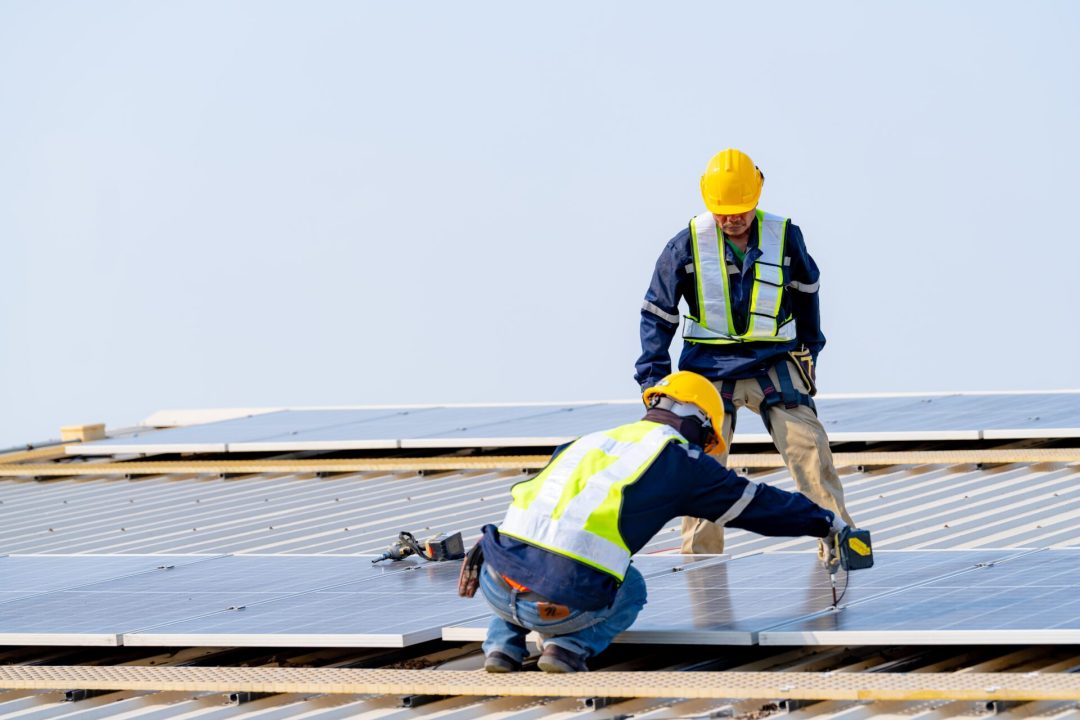Reducing energy costs is a priority for many businesses, and energy-efficient roofing can make a significant impact. The right commercial roofing system can help lower utility bills by improving insulation, reflecting heat, and reducing HVAC strain. Here’s how you can save your business money while enhancing sustainability.
How Energy-Efficient Roofing Works
A sustainable roof minimizes heat absorption and improves insulation, reducing the need for excessive heating and cooling. Key features include:
- Reflective roofing materials – Surfaces like cool roofing, TPO roofing, and metal roofing reflect sunlight instead of absorbing it.
- Proper insulation – High-quality roof insulation prevents heat loss in winter and heat gain in summer.
- Ventilation systems – Proper roof ventilation allows heat and moisture to escape, reducing the burden on HVAC systems.
Types of Energy-Efficient Roofing for Businesses
Choosing the right commercial roofing system can significantly impact energy efficiency. Here are some of the best options:
Cool Roofing
Cool roofing materials, such as white TPO roofing and reflective roof coatings, help lower surface temperatures by reflecting UV rays, reducing heat absorption.
Metal Roofing
A metal roof with a reflective finish can bounce sunlight away, keeping the building cooler while offering long-term durability.
Green Roofs
Also known as living roofs, these feature vegetation layers that improve insulation and absorb rainwater, reducing heat buildup in urban environments.
Spray Foam Roofing
Spray polyurethane foam (SPF) roofing creates a seamless insulated barrier, minimizing air leaks and enhancing thermal performance.
How Energy-Efficient Roofing Lowers Utility Bills
Reduces Cooling Costs
A reflective roofing system helps lower indoor temperatures, reducing the workload on your HVAC system. This means lower electricity consumption and reduced cooling costs during summer.
Improves Insulation
Good roof insulation prevents heat loss in winter, cutting down on heating expenses and keeping indoor temperatures stable year-round.
Lowers Peak Energy Demand
By reducing heat absorption, an energy-efficient roof helps lower peak electricity usage, resulting in lower demand charges on utility bills.
Qualifies for Energy Incentives
Many businesses investing in sustainable commercial roofing may qualify for government incentives, tax credits, or utility rebates, further enhancing cost savings.
Additional Benefits of Energy-Efficient Roofing
- Extends roof lifespan – Reducing heat-related expansion and contraction can help prevent roof damage over time.
- Enhances sustainability – Lowers carbon footprint by reducing overall energy consumption.
- Improves indoor comfort – Helps regulate temperatures, reducing the need for constant thermostat adjustments.
Upgrade to Energy-Efficient Roofing Today
Investing in energy-efficient roofing is a smart way to lower your utility bills and improve building performance. At West Texas Commercial Roofing, we specialize in energy-saving roofing solutions, including TPO roofing, metal roofing, roof coatings, and insulation upgrades.
Contact us today to schedule a roof inspection and start saving on your business’s energy costs.

